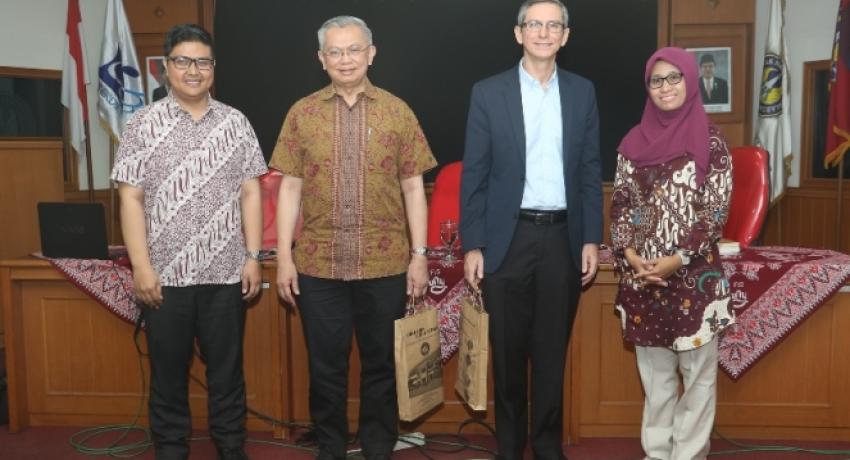Faculty of Social Sciences Yogyakarta State University (FIS UNY) titled studium generale with the theme "Joze Rizal and the Indiginization in the Plilippines" at Ki Hajar Dewantara FIS UNY Room on Thursday (12/7/2018). The event was attended by olen Kajur / Kaprodi, lecturers and students at FIS UNY. In Studium generale, FIS presents Prof. Paul A. Dumol, Ph.D and Juan O. Mesquida, Ph.D from the University of Asia and the Pacific, Philippines. Head of U2IK (Unit of International Affairs and Cooperation) FIS UNY, Utami Dewi, M.PP said that this studium generale is a follow up of the cooperation that has been pioneered by FIS UNY some time ago. "Hopefully with this studium generale can deepen the science of indigenization. This is relevant to the vision of FIS to develop indigenization of social sciences, "Utami explained.
On the occasion, Prof. Paul A. Dumol, Ph.D explores the famous novel by Joze Rizal entitled Noli Me Tangere and El Filibusterismo. Both novels voiced criticism of the Spanish occupation of the Philippines. "Novel Noli Me Tangere is Rizal's dedication to Noli. Rizal claims that Filipinos are ill with social cancers whose remedies are unknown. Noli's goal is to show the disease to the public so it can invite readers to jointly treat the cancer, "said Dumol in his presentation
"In the novel is told that one of the characters, Elías, met the main character, named Ibarra. Elías, representing the poor, narrates two problems to Ibarra: oppression of the brothers and the suppression of civilian guards (a kind of national police). Elías asked Ibarra to ask his friends in Madrid to convey problems to the government, so the problem can be solved. Ibarra refused and said his friends had no influence "Dumol added
Dumol continued, at the end of the meeting, Ibarra and Elías debated the solution to the problem. Ibarra believes that the solution is through education but Elías thinks education is not enough. In addition, there must be a political campaign for civil rights, something Ibarra rejected.
"In the second chapter to the last chapter, Ibarra and Elías meet again. This time Ibarra, who was jailed on false charges of rebellion against the colonial government, had become an agitator and now fully supports the revolution. Elías rejects Ibarra's solution and nobody wins in this debate. " (Eko)





